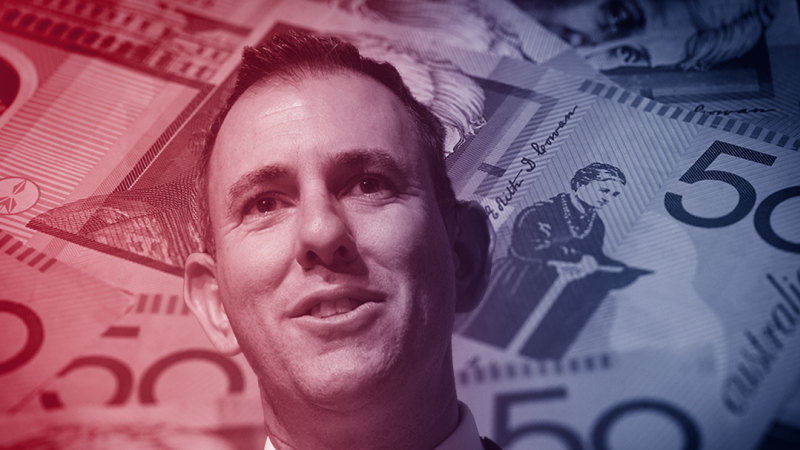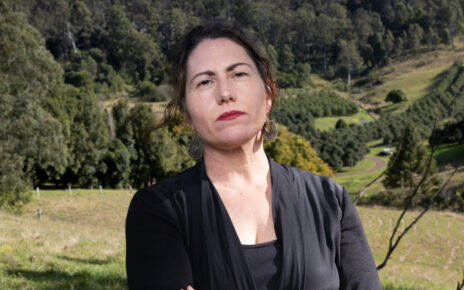Save articles for later
Add articles to your saved list and come back to them any time.
Concern over the cost of living has doubled over the past year, with almost half of Australians now naming it as the top priority for the federal government.
The sharp rise in hip-pocket concerns on the first anniversary of the Albanese government follows a year of soaring inflation and interest rates and comes amid a political debate between Labor and the opposition over how to tackle the issue.
Treasurer Jim Chalmers is being marked on cost of living more than any other issue.Credit: Oscar Colman, Louie Douvis
An exclusive new survey found 48 per cent of respondents named cost of living as their highest priority. This compares with 16 per cent in January last year and 25 per cent a week before the election in May.
The survey, conducted for this masthead by Resolve Strategic, shows that cost of living ranks considerably higher than any other issue for vote choice, with 11 per cent naming healthcare, 10 per cent the environment and climate change and 8 per cent management of the economy.
Grattan Institute economic policy program director Brendan Coates said the polling reflected the fact that the country was facing the highest inflation rate in decades and the sharpest interest rate spike since the 1980s.
“Compared to where we were at the election, household budgets look so different for so many people,” he said.
Coates warned that it was not clear the end was in sight, with the cash rate likely to be raised again in coming months.
He said the government was acutely aware that if it didn’t deal with inflation, it would be blamed for it by voters and this explained some of the spending restraint in this month’s federal budget.
But he said the government needed to be doing more to tackle underlying problems in the housing market, including rental prices.
”The rent assistance increase was welcome and needed, but it doesn’t do anything to solve the underlying problem, which is that housing is scarce. And that’s why rents are rising,” Coates said.
Resolve director Jim Reed said the polling trend lines for cost of living closely follow those for inflation and interest rates, which showed that the extra costs were being felt by Australians immediately.
“It tends to be the everyday touchpoints – the utility bills, the groceries and the mortgage payment – that are seen and felt most,” he said.
“Mortgage costs have now filtered through to renters as well, so there’s no escaping the pain.
“People are watching their pennies. There’s the extreme where people are having to make choices between food and medicine or rent and power, but everyone is having to prioritise their spending and budget more carefully,” he said.
Reed said there was a general recognition of keeping spending in check in the budget – otherwise it would add to debt and inflation – so it had to prioritise those on the lowest incomes.
“I don’t think many people begrudge that, but it meant they saw themselves missing out when COVID had conditioned them to being supported,” Reed said.
The government responded to months of pressure over the JobSeeker allowance in the budget, with a decision to add $40 a fortnight for the unemployment benefit as well as Youth Allowance, Austudy and other income support.
With inflation running at 7 per cent and the cash rate at an 11-year high, the opposition has named cost of living as the crucial test for the government and said Labor was spending too much and raising too much in taxes.
But the survey showed Labor has a 12-point lead over the Coalition on which side voters believe is better placed to keep the cost of living low.
When asked which party and leader they thought would perform best on the issue, 35 per cent said Labor and 23 per cent named the Coalition.
Treasurer Jim Chalmers said the government was “delivering meaningful cost-of-living relief, investing in health, aged care and better government services, and laying the foundations for a stronger, more secure and resilient economy”.
“While many challenges remain, what we have managed to accomplish in these past 12 months only makes me more optimistic and ambitious for our economy, our country and our people,” he said.
Shadow treasurer Angus Taylor said the government was not taking the “hard” decisions to tackle inflation.
Taylor said the government needed to instead support “hardworking, aspirational Australians to get ahead and drive opportunity and prosperity – not big government”.
“This is the pathway back to a low inflation, high-growth economy,” he said.
The Resolve Political Monitor surveyed 1610 eligible voters from May 10 to May 13.
Cut through the noise of federal politics with news, views and expert analysis from Jacqueline Maley. Subscribers can sign up to our weekly Inside Politics newsletter here.
Most Viewed in Politics
From our partners
Source: Read Full Article



